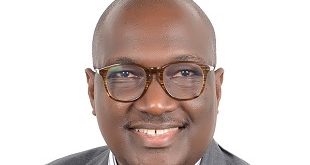
By Peter Nyanzi
The NRM Caucus might have saved him, but stepping down could enable a post-Mutebile BoU to redeem its frayed image
What is happening to Bank of Uganda Governor Emmanuel Tumusiime Mutebile is clearly a big test, not just for him as a technocrat but also for the central bank and the economy generally. Mutebile’s job could have ‘survived’ thanks to the spirited efforts of the NRM Caucus and President Yoweri Museveni, but I think his reputation as a public servant and that of the central bank lie in jeopardy. For several reasons, my view is that Mutebile should just be a gentleman and step down voluntarily.
Firstly, the lifeblood of the financial services industry is confidence and perpetual credibility. Financial institutions and those who work in them must evoke trust and confidence in their customers. If he can’t evoke confidence and send a clear message that his customers’ interests are in safe hands, a banker might as well just close shop and do other things. The market and customers never forgive a breach of confidence and certainly never forget. That is why financial institutions espouse extremely high standards for personal and corporate conduct. Any breach of public confidence and trust could be irreparably detrimental.
As it is, Mutebile’s shenanigans in the Basajjabalaba scandal have irreparably hit the reputation of the central bank and consequently the confidence and trust of the market. The trillions of shillings released to buy jets under a gentleman’s agreement with the President also exposed the Central Bank as vulnerable to political pressure. That means the BoU will always be perceived to be in a weaker position with Mutebile in charge.

Secondly, Mutebile’s actions have compromised the independence of the central bank, which is the bulwark of economic and monetary stability in any country. Article 162 (2) of the Constitution says that in performing its functions, the BoU “shall not be subject to the direction or control of any person or authority.” There are strong reasons why the framers of the Constitution saw the need to safeguard the central bank from undue political influence.
Worldwide, the central bank is a revered sacred institution and its independence and autonomy are jealously protected by all. In many countries it is actually a serious offence for a central bank official to be subject to or to be under the control of other people or authorities when performing central bank functions.
This is because the central bank, as a public-interest institution, is indispensable to the pursuit of monetary stability and a credible currency system. In essence, all authority is vested in the hands of professionals and technical experts for the effective management of monetary policy thus raising market confidence that the institution would make appropriate policy decisions for the good of all. This is absolutely important for the stability of the economic system and more so in the globalised environment we operate it today.
The regimes that the NRM ousted from power used to interfere with the BoU’s activities, which greatly undermined its independence and made it impossible to control inflation and achieve monetary objectives. Thankfully, the NRM largely tried to reverse this trend by allowing the BoU to ensure macroprudential policy. But what is happening now is definitely negating the impressive gains we have made over the past two decades.
With the ongoing global economic crisis, investors both local and offshore – are critically watching and wondering if indeed BoU has the backbone and independence to prevent, manage and resolve financial challenges in the economy. Is BoU appropriately shielded from politics as it should be?
Does BoU under Mutebile still have the mettle and the autonomy to minimise inflationary risk and consequently ensure long-term financial stability so as to instill investor confidence? One does not have to be an expert to conclude that the answer to these questions is an emphatic NO.
While its capacity to manage the monetary system could be beyond dispute, BoU’s apparent lack of independence from politicians with Mutebile at the helm’ is an issue of gross insecurity and uncertainty to the country’s monetary and development prospects. With this situation, sensible investors will think twice before putting, let alone keeping, their money in Uganda.
Thirdly, given its role as banker, supervisor and regulator of the banking industry with the noble mandate to control and discipline all financial institutions, the Central Bank must at all times be seen as a role model and an exemplar in proper corporate conduct. Worldwide, there are strict regulations that are intended to protect the integrity and reputation of the central bank. Over the last 25 years, the Bank of Uganda has largely measured up to those very high standards, as it has been above reproach and highly respected worldwide.
However, the ongoing scandals have left the central bank susceptible and exposed, and not least with reports from the Parliamentary Accounts Committee claiming that board minutes were “forged” in a bid to protect the governor. There might be no proof yet to confirm the claim, but the mere mention of the word ‘forgery” being attributed to a regulator of the banking industry is terribly damaging. In difficult economic times like these when inflation is soaring, the exchange rates are sky-high and there is turmoil in the interest rate market, the financial services industry needs nothing short of a credible and spotless central bank to supervise it. I think it’s not asking too much to say that a post-Mutebile central bank should be given an early opportunity to redeem its image and reputation in the public eye.
Fourthly, Mutebile’s continued stay is clearly undermining his own legacy as one of the greatest Central Bank governors on the continent. Just last year, he was named the African Central Bank Governor of the Year. While one would argue that the markets still need a man of Mutebile’s caliber around, his best days are clearly behind him. While his performance in the past 20 years was outstanding, Mutebile is now a liability, a weak link in Uganda’s monetary stability prospects and should just give way to a new dispensation.
By insisting on staying in office, I think Mutebile is not only being selfish and unfair to his colleagues, but is also subjecting BoU and the economy at large to significant reputational risk.
I think it is not too late for Mutebile to be a gentleman, look the President and the board in the eye and say, “guys, my conscience is clear but for the sake of the institution and the country I love, adieu.”
Peter Nyanzi is a journalist and post-graduate student of Journalism and Communication.pnyanzi@independent.co.ug
 The Independent Uganda: You get the Truth we Pay the Price
The Independent Uganda: You get the Truth we Pay the Price



